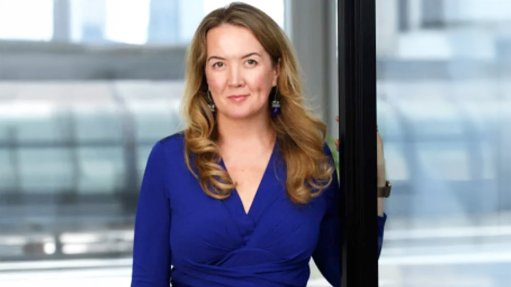The problem with dogma
Bad ideas matter. They have their own coherence and own power”. These words are attributable to Timothy Snyder, a US historian who specialises in the history of Central and Eastern Europe, the Soviet Union and the Holocaust. He currently serves as a professor at Yale University, in the US, and as a permanent fellow at the Institute of Human Sciences in Vienna, Austria.
There are many times when one is confronted with so many thoughts that one holds or are held by others and one finds that the world has changed so much that one either faces oblivion on account of one’s own irrelevance or has to adapt.
Principles in life need not change, but thoughts on how to achieve ends that are aligned to one’s principles will have to be guided by changing context. This a classic case of strategic goals versus tactics. The two are often confused or treated as one and the same. Notably, when tactics appear as if one is adjusting the means to an end, this can be regarded by ideologues as having sold out or sacrificed one’s principles. It is not unusual to be called names or suddenly treated as a pariah just because you differ on the means to an end. The result is inevitable: ex- communication from the fold of the faithful.
This is why many of the faithful cannot escape their affiliations, even though they may see what is going on as very troublesome – their loyalty gets the better of them and they slowly become part of the problem.
The point of this article is to reflect on those occasions – whether in teaching or when giving talks – when what I would call the problem of ideological Puritanism arises. Ideology is most pernicious and perhaps most harmful to one’s self when there is dogged adherence to ideas, the foisting on the world an outcome that would either cause more self-destruction or weaken the achievement of a goal that is the professed basis of one’s belief.
To deal with ideology, one must pose four simple questions: Does the State have the resources and expertise required to ensure full employment? If not, what is the best role that the State should play to ensure full employment? Can all goods and services be provided by the State? What are the best roles of the State and society at large in ensuring that there is low inequality or none at all?
I could hold the position that one way to achieve public-good outcomes is to build a capable State in which both public and private enterprises have primacy in delivering the public goods. It is unlikely that the State can be everywhere and be everything. Nonetheless, concerns about managing forms of market tyranny and monopoly require vigilance at different strata of society, including the corporate boardroom. It is a whole-of- society role.
On the State: it is all well and good if there is a well-functioning State entity that has been mandated to deliver a public good, especially in areas of natural monopoly such as electricity, which is also key to economic success and prosperity. But what if we find that the State has eroded its position over time, losing, as it were, its ‘commanding heights’ over the economy or a sector? We are seeing that play out in real life in South Africa at present. Eskom has become a behemoth that is starting to implode on itself. The solution we see is not pragmatism in times of crisis but more ideology.
Some of the dogged ideological positions one confronts with regard to what to do about Eskom can be seen on several fronts.
One is that coal is a national resource and we ought to stick to it. The reality of coal use for power generation is very different from what it was 100 years ago. As a resource, coal’s calorific value is declining, while its cost of production is increasing. In the past, the State set a domestic price cap and left the export price to be determined by the market. Moreover, coal is now subject to increased environmental pressure in a world where many countries are fast switching to other forms of electricity generation.
The second ideological position is that switching from coal to renewables is akin to giving up a country’s sovereignty. Well, this is a strange thought, as all the technology needed to dig out the coal and to use it for electricity involves expertise and technology from outside South Africa and this has been the case all the time we have had coal. Just look at who is providing the equipment and services for the building of Medupi and Kusile. Have you never heard of Hitachi, Alstom, ABB, Siemens, and others? Ironically, we are running to the Netherlands for spare parts to keep alive old, cranky coal plants – we seem to have lost our sovereignty!
There is an equivalence – we have vast solar and wind resources. They are a gift of nature within the boundaries of South Africa’s geographic territory. We need the technology, which has been developed elsewhere, to find the most economical ways to capture the sun and wind to produce electricity – unless one is so dogged that one believes we should reinvent the wheel.
The last ideological position is that independent power producers (IPPs) are a form of privatisation of Eskom. The bulk of the spend of Eskom, which is the largest procurer of private services in Africa, is with private entities. It is not unusual to find that proponents of the nationalisation of State-owned utilities are uncomfortable with private control and piracy in one part of a utility but fail to reconcile the contradiction in what is already going on in the whole business. It buggers belief.
Eskom’s coal is all procured from private firms and often in less-than-transparent ways. Anti-IPP stalwarts have nothing to say about overpriced toilet paper or kneepads; presumably, this form of piracy is fine but the most competitive and cheapest source of electrons from a rigorous IPP bidding process with a lot more transparency must earn their ire. It seems that in South Africa ideological dogma prefers form over substance, and then you have this outcome we all face: the ridiculous trumps the sublime.
Article Enquiry
Email Article
Save Article
Feedback
To advertise email advertising@creamermedia.co.za or click here
Announcements
What's On
Subscribe to improve your user experience...
Option 1 (equivalent of R125 a month):
Receive a weekly copy of Creamer Media's Engineering News & Mining Weekly magazine
(print copy for those in South Africa and e-magazine for those outside of South Africa)
Receive daily email newsletters
Access to full search results
Access archive of magazine back copies
Access to Projects in Progress
Access to ONE Research Report of your choice in PDF format
Option 2 (equivalent of R375 a month):
All benefits from Option 1
PLUS
Access to Creamer Media's Research Channel Africa for ALL Research Reports, in PDF format, on various industrial and mining sectors
including Electricity; Water; Energy Transition; Hydrogen; Roads, Rail and Ports; Coal; Gold; Platinum; Battery Metals; etc.
Already a subscriber?
Forgotten your password?
Receive weekly copy of Creamer Media's Engineering News & Mining Weekly magazine (print copy for those in South Africa and e-magazine for those outside of South Africa)
➕
Recieve daily email newsletters
➕
Access to full search results
➕
Access archive of magazine back copies
➕
Access to Projects in Progress
➕
Access to ONE Research Report of your choice in PDF format
RESEARCH CHANNEL AFRICA
R4500 (equivalent of R375 a month)
SUBSCRIBEAll benefits from Option 1
➕
Access to Creamer Media's Research Channel Africa for ALL Research Reports on various industrial and mining sectors, in PDF format, including on:
Electricity
➕
Water
➕
Energy Transition
➕
Hydrogen
➕
Roads, Rail and Ports
➕
Coal
➕
Gold
➕
Platinum
➕
Battery Metals
➕
etc.
Receive all benefits from Option 1 or Option 2 delivered to numerous people at your company
➕
Multiple User names and Passwords for simultaneous log-ins
➕
Intranet integration access to all in your organisation

















